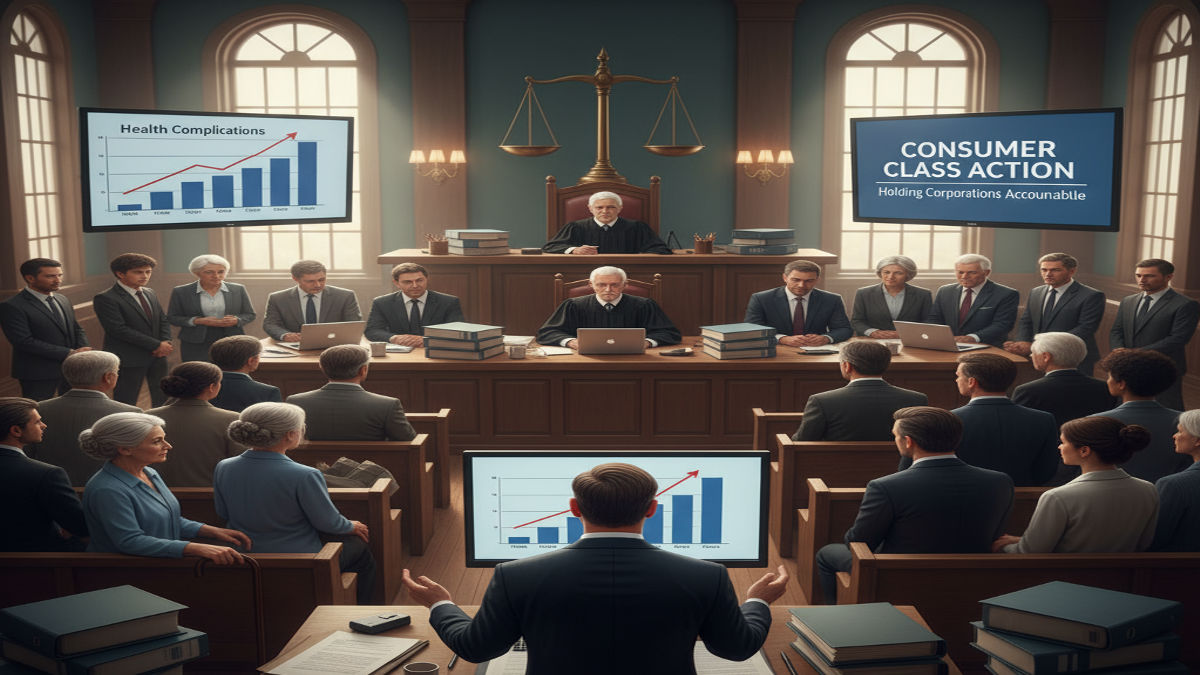From mislabeled supplements to dangerous pharmaceuticals, the modern health marketplace is filled with both innovation and risk. While advances in medicine and wellness products promise better lives, consumers often find themselves vulnerable to misleading marketing, hidden side effects, and corporate negligence. Consumer class actions have become one of the essential tools for addressing these harms, ensuring that accountability in Health on Trial and wellness isn’t just aspirational—it’s enforceable.
The Role of Class Actions in Consumer Health
Class actions bring together individuals harmed by the same company or product into a unified legal front. This mechanism is especially vital in health-related cases, where individual damages may be too small to pursue alone but collectively reveal systemic misconduct.
Pharmaceutical companies, supplement makers, and even medical device manufacturers have all faced class actions for making misleading claims or failing to disclose potential dangers. These lawsuits not only secure compensation but often lead to safer labeling, stricter testing, and improved regulatory oversight.
Sarah N. Westcot, Managing Partner at Bursor & Fisher, P.A., underscores their importance: “Consumer class actions are critical in holding corporations accountable in the health sector. Without them, many dangerous practices would remain hidden, and countless individuals would continue to suffer in silence.”
Exposing Hidden Dangers in Pharmaceuticals and Wellness Products
The rise of GLP-1 drug lawsuits, opioid litigation, and suits over mislabeled vitamins highlights how class actions shine a light on hidden dangers. These cases reveal patterns of negligence—from failing to disclose severe side effects to overstating effectiveness—that put consumer safety at risk.
In many cases, litigation has led to large-scale recalls, multimillion-dollar settlements, and policy reforms. By exposing these dangers, class actions not only provide justice for victims but also act as deterrents against future corporate misconduct.
Protecting Consumers in the Digital Age
The intersection of healthcare and technology has introduced new risks, particularly in data privacy. From health apps tracking personal information to digital pharmacies storing sensitive records, consumer data is now as valuable as the products themselves. Class actions targeting breaches and misuse of health data are helping establish much-needed boundaries in an era where privacy is often overlooked.
Driving Accountability and Systemic Change
Beyond financial settlements, consumer class actions reshape corporate behavior. Facing the reputational and legal fallout of these lawsuits, companies are pressured to reform business practices, strengthen compliance, and prioritize safety over profit.
For the health industry—where lives are directly impacted—this accountability is crucial. Class actions ensure corporations cannot hide behind marketing or fine print when the well-being of consumers is at stake.
Conclusion
In a world where the line between wellness innovation and corporate misconduct can be thin, consumer class actions serve as a critical safeguard. They empower individuals, demand transparency, and reshape industries from the ground up.
As Sarah N. Westcott emphasizes, these cases are not just about compensation—they are about exposing the truth, preventing harm, and redefining accountability in Health on Trial. Now more than ever, consumer class actions matter—not only to protect individuals but to ensure the health marketplace remains safe and fair for all.

